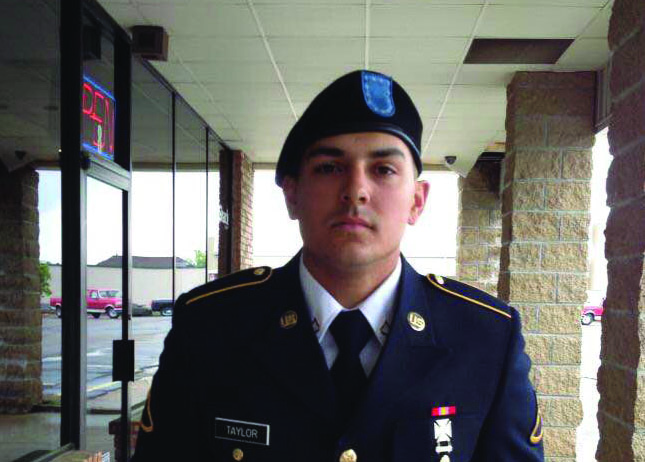
By Leslie Muir/// Opinions Editor
It’s easy to spot Roy Taylor, ’17 in the crowd outside of Watzek — he’s one the one rocking army fatigues. This isn’t a fashion statement though. When we meet at the back tables to discuss his participation in the Reserve Officers Training Corps (ROTC) program, he gets a few odd glances from passing students while we talk.
“Oh yeah, you get a lot of looks wearing [the uniform] on campus,” Taylor remarks.
It is the first thing that stands out about him when you pass by, but Taylor’s participation in the army training program through the University of Portland goes well beyond the outfit.
Being a cadet in the federally funded program means a lot of work for the students involved. Only one other cadet, Joaquin Murillo ’16, was enrolled in the partnership program this year, but graduated this last December leaving Taylor as the only current member.
Taylor admits with a smile, “I have to commute to the U of P, and do training there a few days a week after my classes.” The physical and educational training that cadets receive at their home base on the North Portland University campus happens in the afternoons after their regularly scheduled Lewis & Clark classes. The work they do there does not count for credits at LC, which does not officially have an ROTC program but rather a partnership with the U of P, although Taylor does receive eight credits worth of practicum. However, what he is working towards instead of LC credits is a position as a commissioned officer in the army upon graduation. This allows previous ROTC students to have a career in the military immediately after graduating from college, and potentially for their entire working lives. For those who wish to take this path, the extra work required during their college years can be daunting, but ultimately very rewarding.
Professor David Campion, chair of the History Department, is the LC administrative liaison to the University of Portland program. He says that the quality of training that the cadets receive helps them with their educational pursuits.
“The responsibility and decision-making skills that you gain from this kind of program are invaluable,” Campion said.
His own experience in ROTC during his college years prepared him for a career in the Navy before returning to academia and becoming a professor. When asked how his naval experience better prepared him to return to school, Campion noted, “the life-and-death decisions that you make on a daily basis give you an enormous sense of responsibility and critical thinking that you don’t often get at a young age.”
Taylor agrees about the benefits that cadets gain by going through the ROTC program.
“The amount of discipline you have by the end is incredible. You learn things you just couldn’t anywhere else,” he said.
One example of this is the military history course offered by Professor Campion at LC’s campus, only open to ROTC cadets in the program.
Taylor acknowledges that it can be difficult to train and do well in school. “The program was too hard for one student, and he dropped out. After a few others graduated, it’s just me and one other cadet,” he said.
The program has had a hard time finding traction at LC as most students don’t equate a private liberal arts degree with government-funded military training.
Professor Campion recalls that when ROTC first came to the campus a few years ago, it had much more of an impact on the students. Football players like Taylor were the main participants. “There were a few football players who had joined … that’s our history. In World War I, the entire LC team enlisted,” Campion notes.
When asked what he’s most excited about for the future, Taylor says with a smile that it is his upcoming enlistment. “I took some time off from school to get military training before, and now I’m so excited to get back to the base and be enlisted again.”
With a hint of smile, Taylor adds, “I have job security going forward,” something that not all liberal arts students can say.
While Taylor’s uniform may at first seem to be his most striking feature, it becomes clear after speaking with him for only a few minutes that his sincerity and confidence are decidedly the most notable aspects about him. He says that his uniform makes him feel proud and that he wears it around campus happily, despite the odd looks. Taylor says that it represents the program and that he is a part of something bigger, and often not seen at LC.
ROTC training might not be a big attraction now, but Taylor hopes it will continue to grow and that more of his classmates will join in. Taylor emphasizes that the ROTC program is valuable and more accessible than one might think, even though it requires students to commute to a different campus. “Anyone can do it,” he says with a smile, and he means it.
Subscribe to the Mossy Log Newsletter
Stay up to date with the goings-on at Lewis & Clark! Get the top stories or your favorite section delivered to your inbox whenever we release a new issue.

Leave a Reply